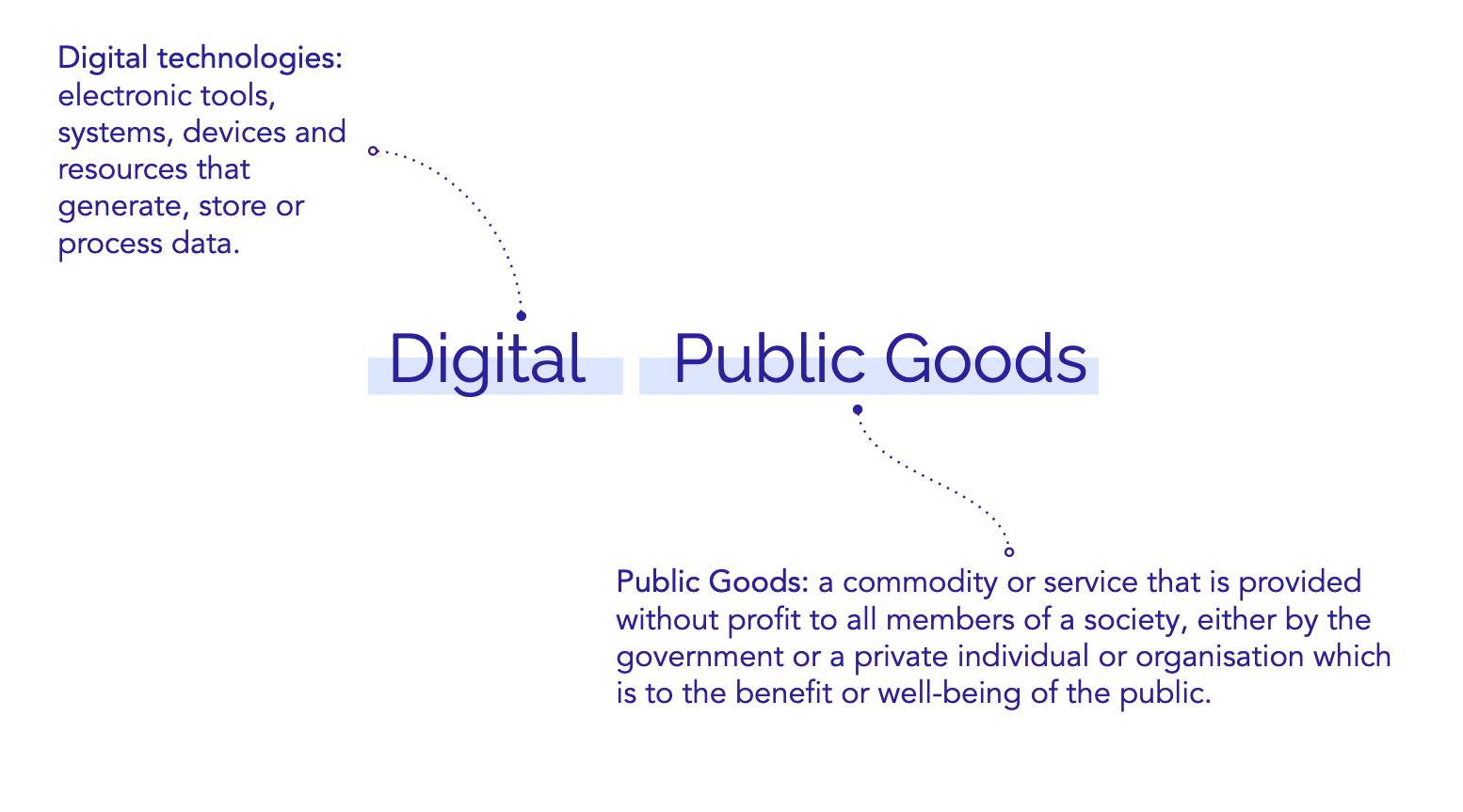Hey! I’m super excited to announce that I have joined the Secretariat Team at the Digital Public Goods Alliance. In this role, I leverage my passion for open source and technical background to assess DPG applications, provide technical support and advocate for open source projects seeking recognition as digital public goods, educate stakeholders about the DPG Standard and DPG application process, contribute to strategic planning efforts to improve the DPG application processes and build/manage relationships with DPG product owners and the entire DPG community.
The Digital Public Goods Alliance is a UN-endorsed, multi-stakeholder initiative that accelerates the attainment of the sustainable development goals by facilitating the discovery, development, use of, and investment in digital public goods. According to the UN Secretary General’s Roadmap for Digital Cooperation, digital public goods are open source software, open standards, open data, open AI systems, and open content collections that adhere to privacy and other applicable best practices, do no harm, and are of high relevance for attainment of the United Nations 2030 SDGs. This definition is operationalised through the DPG Standard, and you can find all DPGs being developed and used across the world in the DPG Registry.


Images source: https://digitalpublicgoods.net/digital-public-goods.
Digital public goods are important to building a more equitable world, solving global challenges, and attaining the sustainable development goals. Open Software like FormSG or OpenCRVS enables government agencies to better serve their citizens, and others like OpenFn enable other digital solutions to automate processes and exchange data. Open Datasets like AGROVOC Multilingual Thesaurus or Govdirectory enable different sectors to make better decisions. Likewise, Open Content Collections like Creative Commons Legal Tools or Data to Policy Navigator.
All these solutions are designed in ways different from all the libraries we npm or pip install. This is part of what makes DPGs different from proprietary or even many typical open source projects. We need solutions many others can adapt to their unique contextual needs, and DPGs are designed for this purpose. They are designed to work in different settings and take into consideration the geographical differences of where they will be used. They are designed to be interoperable, so other solutions can exchange data and continue extending the value provided. They are designed following open standards and best practices. They are designed to anticipate, prevent, and do no harm by design, thereby protecting their users. They are designed to ensure the privacy, security, and integrity of PII data. They can be made part of a country's digital public infrastructure (DPI) and even a lot more!
To learn more about applying to become a digital public good, you can read this submission guide, take this eligibility test, or read the DPG Wiki.
This is a new space for me, and the past two months have been an exciting ride working with amazing colleagues, with so much learning and work already being done. Please feel free to book a call or write to me to chat if you’d like to:
Learn more about the DPGA or Digital Public Goods.
Learn more about how your open source project can become a DPG.
Learn more about how certain DPGs can fit into your country’s DPI or how you can support or implement certain DPGs.
Chat about anything else!
I see how the Digital Public Good Alliance is facilitating the discovery and deployment of open source technologies, bringing together countries and like-minded organizations to create a thriving global ecosystem for digital public goods. This prompted me to develop an interest in the great work they’ve been doing, and I'm elated to join and help in different capacities to drive the goals of the DPGA towards unlocking the potential of open source technologies for a more equitable world.
"If we create a product we like that never ends up in people’s hands, who are we working for beyond ourselves? How can we fix that? How do we know we’re making the world a better place and not just creating software for people with free time and a spare laptop?..." —Thibault Martin.
Cheers to making the world a better place. Onwards! 💙

